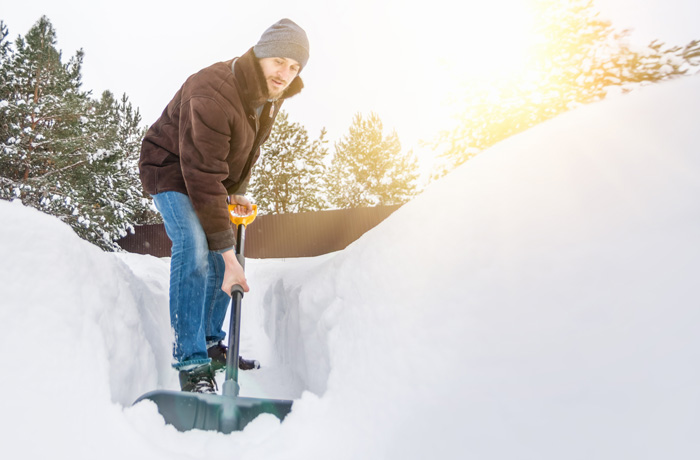
When the temperature starts to fall, being prepared for hazards can help you stay safe and avoid injury. Take note of these helpful reminders and tips for a safer winter.
Prepare Your Home
- Winterize your home and check your heating systems. Visit the CDC website for specific recommendations.
- Be sure you have at least one working smoke detector. Test the batteries monthly and replace annually.
- Install a carbon monoxide (CO) detector to alert you of the presence of this odorless and potentially deadly gas. Often described as flu-like, the most common symptoms of CO poisoning are headache, dizziness, weakness, upset stomach, vomiting, chest pain and confusion and require immediately medical attention.
Ready Your Ride
- Winter weather means changing the way you drive. Even a little snow, sleet and ice can cause hazardous road conditions. Slow down and give yourself extra time to reach your destination.
- Learn more about driving in and preparing your vehicle for winter here.
Take Care in the Great Outdoors
- Wear the appropriate attire: wind-resistant coat; inner layers of light, warm clothing; mittens, hat and scarves; and waterproof boots.
- Sprinkle cat litter or sand on icy patches for added traction.
- Recognize the signs of hypothermia or frostbite and seek immediate treatment if necessary.
- When participating in recreational activities like skiing, snowboarding, sledding or skating, understand the basic safety precautions and wear the right gear for the sport.
- Don't let winter deter you from working up a sweat. Follow these exercise tips to stay safe, warm and motivated throughout the season.
Shovel Safely
Most people won't have a problem shoveling snow, but this activity can put certain individuals at risk for heart attack. People over 40 or those who are relatively inactive should be cautious. To shovel safely:
- Don't shovel after a big meal or while smoking.
- Don't drink alcoholic beverages before or immediately after shoveling. Alcohol can increase your sensation of warmth, causing you to underestimate the additional strain your body is under.
- Instead of lifting snow, push it. If you do lift, only partially fill your shovel or use a smaller shovel.
- Lift with your legs, not your back.
- Take it slow and don't overdo it. Stop if you're in pain or feel exhausted.
- If you have a history of heart disease, talk with your doctor before shoveling snow.
- Stop immediately and call 911 if you experience the signs of heart attack.
- Be safe when using and pushing a heavy snow blower.
Holland Hospital encourages you to pay attention to your body and take preventive steps for care. If something isn't right, call your primary care provider to determine the best place for treatment at the right time. Seeing your doctor at the first sign of symptoms can help you avoid emergency room visits, saving you time and money.
Download and post this handy guide to help you choose the right care at the right place. For life-threatening emergencies, always call 911.